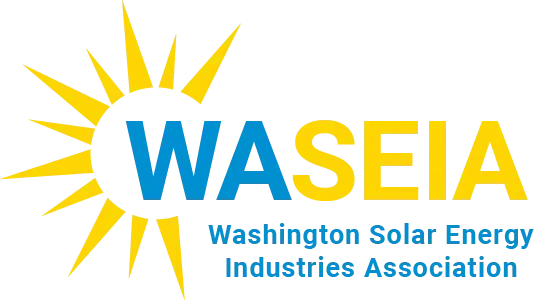Solar FAQs
Here are some of the most popular questions we get asked.
Solar Financial Incentives
Why should I go solar?
Photovoltaic (PV) systems provide several benefits conventional grid-powered electricity does not.
- Free fuel (photons from the sun)
- Stable energy costs for decades to come
- 98% reduction in greenhouse emissions
- Locally produced fuel for electric vehicles
- Solar panels leave no waste
- Energy independence
What is LCOE?
We use LCOE, (Levelized Cost of Energy) to contrast the cost of owning versus “renting” electricity from the utility.
LCOE for solar calculates energy costs over a time period using two variables: the cost of the system and the total amount of energy (kilowatts) it will produce.
The total amount paid for a system varies depending upon whether a customer is paying with cash or if financing.
We use a time period of 25 years, the warrantied lifespan of a PV system. Several other variables impact the panels energy production such as shading, roof orientation, efficiency and degradation rate of the panel. Therefore, each roof scenario is unique.
We include a 5% annual increase when calculating the utility LCOE.
Our proposals show customers three LCOE options focusing on the cost per kWh (kilowatt hour). We contrast the 1) cash, or 2) financed cost per kWh with owning solar versus 3) buying kWh from the utility.
Is the roof eligible for the Federal Tax Credit?
Does Solar Really Work in Western Washington?
Even on cloudy days, panels can still produce 50% of their potential output.
How to pay for solar?
What is “no cost” solar?
Does the government pay people to go solar?
What happens to my home value?
- The added value directly correlates with long-term energy savings. For every $1 reduction in yearly utility bills, home value increases by $20. So, if your solar energy system saves you $500 per year, it can increase your home value by $10,000.
Solar PV, Batteries And Technology
How many panels do I need to power my home?
Every home and homeowner is unique, so we ask customers for a copy of a recent electrical bill so we can see their annual usage. Most utility bills include a bar graph showing monthly and annual usage over the past year. Now that we know how much electricity you need each year, we start to look at the roof. We look to see if there’s enough roof space to produce enough electricity to offset your annual usage. We use sophisticated solar design software that calculates how many panels can fit on the roof and how much electricity they will produce annually. If there is enough roof space, our initial PV design will offset 100% of your annual electrical usage, or we’ll let you know what percentage solar can offset. We typically do not “oversize” PV systems unless the customer anticipates an increased future electrical load such as buying an electrical vehicle or switching from gas to electric heating, adding housemates/family members to the residence.
The best way to find out how many panels you need is to fill out a Free Quote form and send us a copy of your electric bill. We’ll give you a no pressure proposal so you can see how many solar panels it will take to power your home.
What is a kilowatt hour, and how can I tell what I’m using?
A kilowatt hour (kWh) is a unit of energy that represents the amount of electricity used by a device that consumes 1,000 watts over the course of an hour. To put it simply, if you have a 100-watt light bulb, it would take 10 hours to consume one kWh of energy.
You can check your electricity bill for how many kWh you use in a month or annually. We can help you decipher your usage if you send us a copy of your bill.
Can my HOA ban solar?
What kinds of roof material are good for solar?
Do you install solar on manufactured homes?
Do solar panels get recycled?
What about maintenance?
Very dirty solar panels lose 5 to 10% of their efficiency until cleaned however there is really very minimal maintenance needed with most solar PV systems in the Pacific Northwest due to our moderate climate and frequent rainfall. Some PNW system owners never wash their panels. I f PV systems are located in high pollen or dusty areas, we suggest washing them off with a hose after late springtime. Wash the panels in the early morning, late afternoon or on a cloudy day when temperatures are cooler to avoid abrupt temperature changes to the glass. Do not use soapy water to aid in cleaning as the chemicals can damage the sealant on the edges of the solar panels.
Ideally, use deionized water and a microfiber towel. If your system is not easy to reach with a hose, we suggest contacting a window washer in your area familiar with cleaning solar panels. Never walk on solar panels as this will damage them.
How long do solar panels last?
How long do microinverters, string inverters and dc optimizers last?
Do solar panels produce electricity even when it’s cloudy?
What happens when the grid’s power goes out?
What kind of disruption at my house during an installation?
Does the utility pay me for electricity?
Where are your solar panels manufactured?
Will I still get an electric bill?
Will I still be connected to the utility?
Do roofs have to be engineered for solar?
What is a smart electrical panel? (SPAN)
Energy Monitoring: Smart panels provide real-time data on energy consumption for each circuit in your home.
Remote Access: Homeowners can control and monitor their electrical system remotely using a smartphone app.
Load Management: The panel can manage electrical loads by turning circuits on or off to optimize energy usage, especially during peak demand times.
Integration with Renewable Energy: Smart panels work well with solar and battery systems, allowing homeowners to make the most of their renewable energy sources.
Customization and Scheduling: Users can prioritize which circuits stay on during an outage and schedule operations based on their energy needs and preferences.
In essence, smart electrical panels offer a level of customization and control that traditional panels do not, making them an ideal choice for modern, energy-efficient homes.
Puget Sound Solar is a certified SPAN smart electrical panel installer.
Selecting an Installer
How to select a solar installer?
There are many ways to decide upon what solar installer is best for you. Our top two suggestions are to 1) get multiple quotes and 2) get quotes from WASEIA, (Washington Solar Energy Industries Association) members. Some other considerations …
How long has the solar company been in business? We suggest selecting a company in business for 10 years or more. (We’ve been in business since 2001!)
Are they a local, regional or national solar installer? Our experience shows us that local installers tend to provide the best value and quality of work. They are familiar with local building and electrical codes and inspectors, permit review processes and are invested in being a good community member.
Has the installer been involved in any solar advocacy or public policy work and are they familiar with the ever changing landscape of national and local incentives?
Find out if the solar installer subcontracts any of its work. If problems arise down the road, you only want to make one phone call or email to get something fixed.
It is important to do some research about the companies you are considering by looking them up online and checking reviews from multiple sources. We suggest checking Google and Yelp reviews as well as looking for complaints (not just ratings) on the Better Business Bureau website. If you cannot find a company on BBB, look up their hometown. Oftentimes regional and national companies don’t have local BBB review and complaint pages.
Having NABCEP, (North American Board Certified Energy Practitioner) certified staff members is is a positive indicator
Be sure to compare solar installer Workmanship Warranties. Puget Sound Solar offers an industry best 25 year Workmanship Warranty to match our products 25 year Performance Warranty.
Also compare Performance Guarantees. We offer a 10 year Performance Guarantee.
Do you use any subcontractors to do the work?
Do you sell to DIYers?
How do I compare solar quotes?
You should see equipment specific, model #’s, wattage and efficiency ratings and country of origin. For example, a REC 410 watt, 22.2% efficient solar panel from Singapore. An Enphase IQ8A microinverter. Do not settle for “Tier 1” panels as you do not know what you will be receiving. Efficiencies, degradation rate and warranty are important considerations.
You should see production estimates such as kWh/yr for the entire system. For example this system will produce 4500 kWh/yr (4500 kilowatt hours per year). Ideally, you can match your system’s annual solar PV production to your annual electrical consumption to achieve “net zero” status. The solar quote should include an estimation about how much of your electric bill solar can offset.
Compare equipment Performance Warranties which can vary from 10 to 25 years on solar panels and micro inverters. We suggest only selecting equipment with a warranty of 25 years or more.
Solar quotes should have a clear system price without any consideration of financial incentives.
Dollars per watt is commonly used to compare solar equipment or entire installation costs, but it shouldn’t be the only value you consider. Installing a poor quality solar panel with a bad warranty will cost you a lot more in the long run with service calls and replacement costs.
You should see line items showcasing financial benefits such as Washington’s Sales Tax Exemption and the 30% Federal Tax Credit. There should also be disclaimers about the 30% Federal Tax Credit to ensure people understand the eligibility criteria.
Another value that should be called out in the solar proposal is the value of Net Metering – your savings from producing and banking kWh credits with your utility in summer for use in winter. That value should only escalate over time as utility electrical rates are escalating at a rate of about 5% per year. Our solar proposals include the preceding items and more. You can check out a sample quote or fill out our contact form to get a free custom solar quote.
Why work with Puget Sound Solar?
Who is WASEIA? Why is it important?
Are you licensed, bonded and insured?
Resources
What is Net Metering?
Net Metering, established in 1996 and extended in 2019, allows energy exchange with utilities at retail rates, crediting excess production. In Seattle, solar excess in summer is banked for winter, with the fiscal year ending in April, when unused credits are forfeited to prevent exceeding annual consumption. The program’s threshold was increased in 2019, ensuring broader availability. It applies to PV systems up to 100 kW, though Seattle City Light allows larger systems for commercial use under a different rate. As solar adoption grows, new models for grid interconnection and self-consumption are anticipated to emerge.
A Downloadable Tip Sheet
For Architects, Builders and Designers considering solar.


